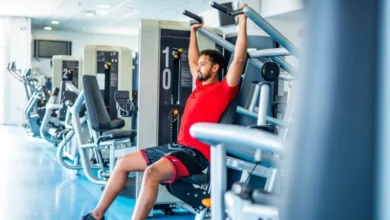Best Time to Work Out: Morning, Afternoon, or Evening for Maximum Results
best time to work out

Choosing the best time to work out is a common question for both beginners and experienced fitness enthusiasts. While the answer depends on factors such as routine, personal goals, and biological rhythm, science has already highlighted specific benefits for training in the morning, afternoon, or evening. Understanding these advantages can help you adapt your workout schedule for better performance, consistency, and overall well-being.
READ ALSO:
- Quick Exercise for Lower Back Pain Relief: Simple Moves That Work
- Does Running Help You Lose Weight? How to Start and Progress Without Losing Your Breath
Follow our PAGE
Best Time to Work Out: What Science Says
The best time to work out is not universal. Instead, it depends on aligning your exercise routine with your personal lifestyle and objectives. Some people feel more energetic in the morning, while others perform better later in the day. Scientific research points out that the body responds differently depending on the time of day due to changes in temperature, hormone levels, and energy availability.
For those looking to lose weight, morning workouts may provide an advantage by stimulating fat metabolism and setting a healthy tone for the day. If the goal is strength and performance, the afternoon is often the peak period for physical output. Evening sessions, on the other hand, can serve as a stress-relieving routine that transitions the body into rest while still burning calories.
The key takeaway is that consistency matters more than timing. Training regularly at a time that suits your lifestyle will bring long-term results, regardless of the chosen period.
Morning Workouts: Energy and Discipline to Start the Day
Exercising in the morning is a powerful way to build discipline and start the day with energy. Many people who work out early find it easier to maintain consistency, since fewer unexpected events can interfere with their routine. Morning workouts boost metabolism, encourage fat burning, and trigger the release of endorphins, the hormones responsible for improving mood and motivation.
Studies also suggest that morning training can enhance sleep quality at night, as the body develops a more regular circadian rhythm. For those aiming at weight loss, fasted training under professional guidance can be an effective approach, though it is not suitable for everyone.
Another benefit is the environment: gyms, parks, and running tracks are usually less crowded in the early hours, creating a calmer and more focused workout session. If you are the type who loves to start the day with a sense of accomplishment, morning workouts may be your best choice.
Afternoon Workouts: Peak Performance and Strength
Afternoon is often considered the prime time for physical performance. During this period, body temperature naturally rises, which improves muscle flexibility, lowers the risk of injury, and enhances strength levels. Because of this, many professional athletes schedule their hardest training sessions in the afternoon to take advantage of optimal energy and endurance.
For people focused on strength training, high-intensity workouts, or endurance sports, afternoons can deliver better results. The body is warmed up, coordination is sharper, and mental fatigue from work or school can be relieved through exercise.
Afternoon training also contributes to appetite regulation, helping you avoid overeating in subsequent meals. If waking up early feels impossible or your lifestyle demands energy later in the day, the afternoon might be the most effective time for you to train.
Evening Workouts: Relaxation and Stress Relief
Evening workouts are the most popular choice for people with demanding daytime schedules. Exercising after work or school helps release accumulated stress, improves mood, and provides a healthy transition from productivity to rest.
Many people enjoy the social aspect of training in the evening since gyms are usually at their busiest. While this can mean a more crowded environment, it can also serve as motivation and an opportunity to connect with others.
Evening training also keeps the body in calorie-burning mode for hours afterward, supporting weight management and overall health. However, one potential drawback is the impact on sleep. Intense exercise too late at night can increase adrenaline production and interfere with rest. To prevent this, it is recommended to finish workouts at least two hours before bedtime, especially for those prone to insomnia.
Expert Recommendations on the Best Time to Work Out
Health and fitness specialists agree that there is no one-size-fits-all answer to the best time to work out. The real secret is choosing a period that aligns with your lifestyle and goals while ensuring consistency.
- If weight loss is your priority, morning workouts may be more effective.
- If your main goal is muscle growth and performance, the afternoon often provides superior results.
- If stress relief and relaxation are your focus, evening sessions can be ideal.
Consistency is the foundation of progress. Training regularly at a time that feels natural to your body will deliver sustainable, long-term benefits. Your workout time should match your personal rhythm, not fight against it.
Practical Tips to Choose the Best Workout Time
- Respect your biological clock: If you are naturally more active in the morning, use that to your advantage.
- Consider your schedule: The best time to work out is the one you can maintain consistently without disrupting other responsibilities.
- Listen to your body: Test different periods and notice when you feel most energetic and motivated.
- Prioritize quality sleep: Rest is essential for muscle recovery and overall results, regardless of training time.
- Focus on consistency: Long-term progress comes from regular practice, not from choosing the “perfect” hour.
Conclusion
The best time to work out varies from person to person. Morning, afternoon, and evening all offer unique advantages that can support weight loss, strength, or well-being. The real secret is not the clock but consistency. Align your training with your goals and daily rhythm, and the results will come naturally.
By respecting your body’s natural tendencies and maintaining discipline, you will discover the best time to work out for your lifestyle and unlock long-lasting benefits for health and fitness.

Hello! My name is Alan Teixeira and I am passionate about helping people live healthier, more balanced lives. From mindful eating to daily habits that promote physical and mental well-being, I believe that small, consistent changes can lead to powerful transformations.
I created this blog to share practical tips, reliable information, and thoughtful insights that can inspire you to take better care of yourself—with balance, mindfulness, and positivity.
If you are looking to improve your health, nourish your body, and build a lighter, more fulfilling routine, you are in the right place. Welcome!





